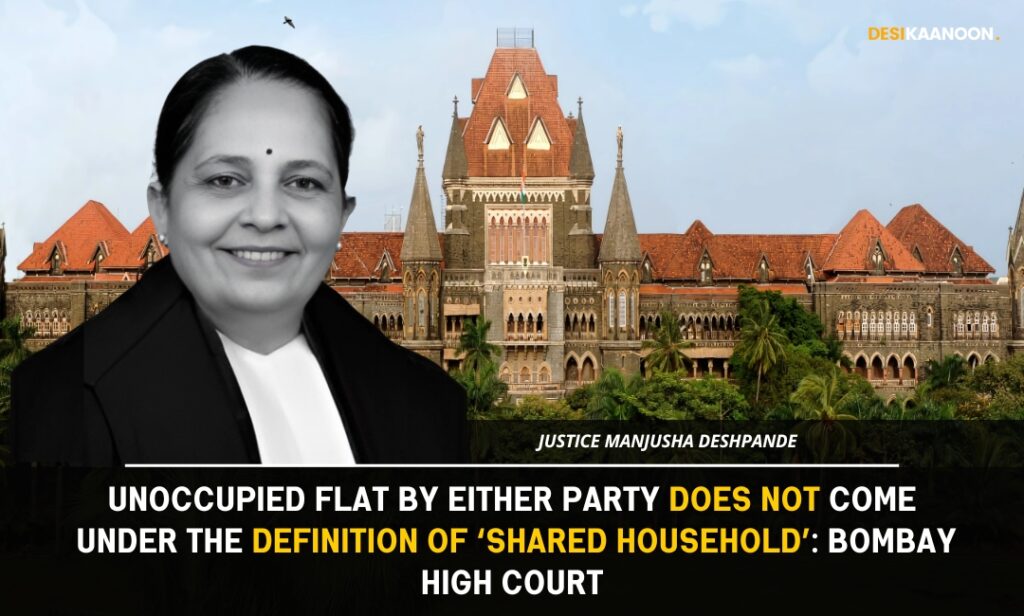Manisha Yadav
The Bombay High Court on 4 July 2025 delivered a significant judgment regarding the definition of a “Shared Household” under the Protection of Women from Domestic Violence Act, 2005. In the case of Srinwati Mukherji v. State of Maharashtra and Ors. 2025: BHC-AS:26973, the Court ruled that a property or flat that is still under construction and not yet in the possession of either spouse does not consider as a “Shared Household”. Consequently, the Court determined that a husband cannot be obligated to pay the pending instalments for such a jointly booked flat.
Justice Manjusha Deshpande presided over the case, addressing a plea from a woman requesting the Court to direct her husband to cover the outstanding instalments for their jointly booked flat located in Malad, Mumbai. Justice Deshpande emphasized that the flat in question was still under construction and stated that the couple had never occupied it.
She elaborated, “In the present case, the possession of the alleged ‘shared household’ has not yet been transferred. The instalments are still not fully paid. Therefore, it would be unreasonable to direct the husband to cover the remaining payments or to mandate his employer to deduct these instalments from his salary for the bank.”
Neither party had ever resided in the property or expressed any intent to do so in the future. The Court emphasized that the statutory protections against dispossession, as outlined in the Domestic Violence Act, apply exclusively to properties that are both completed and ready for occupation. Justice Deshpande ruled that the petitioner’s request was not maintainable since the flat, still under construction and not in possession of either party, fell outside the definition of a “Shared Household” as specified in Section 2(s) of the DV Act.
Previously, the Additional Chief Metropolitan Magistrate had partially granted her request by prohibiting the husband from creating third-party rights in the flat, although it refused to compel him to cover the instalments, later confirmed by the Sessions Court. Challenging this ruling, the petitioner argued that the flat was registered in both names, with most instalments already paid, and asserted her right to reside there, even in its unfinished state. The husband contested her plea, arguing that the flat had never been occupied by either party, was not habitable, and had not been mentioned in the original domestic violence complaint.
Consequently, the High Court upheld the earlier decisions of the lower courts, dismissing the woman’s petition and reinforcing the principle that legal protection under the Domestic Violence Act cannot apply to properties not yet ready for occupancy.
Case Name: Srinwati Mukherji v. State of Maharashtra & Ors.
Case Number: Writ Petition No.424 of 2025
Bench: Justice Manjusha Deshpande
Click here to access the Order
Instagram: Click here.
LinkedIn: Click here.
For Collaboration and Business: info.desikaanoon@gmail.com

